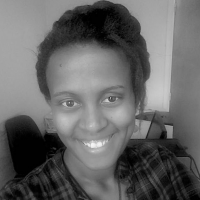
Kiya Gezahegne
Lecturer, Social Anthropology, Addis Ababa University
Kiya Gezahegne is an experienced feminist researcher and lecturer based at the Department of Social Anthropology, Addis Ababa University, Ethiopia. She has been involved in ethnographic research for over eight years on a range of migration related areas including experiences of Ethiopian migrants to and from the Middle East, migration management and livelihoods at the Ethiopia-Sudan border, interlinkages between migration and poverty in Ethiopia, as well as understanding migration and the labour market in Addis Ababa among others. Her research interests include international migration, refugee studies, gender policy, religious identity, borderland conflict, marginalization and slavery in the contemporary world, and adolescent wellbeing. She also contributes to policy processes including the analysis of the Ethiopian National Women’s Policy. Kiya is currently in the final stages of her PhD which focuses on migration across the Ethiopia-Sudan border where she is investigating religious identity and construction at Addis Ababa University as part of the “Borderland Dynamics in East Africa” project coordinated by the University of Bergen. The five-year project supported by the Norwegian Agency for Development Cooperation (NORAD) aims to strengthen the research and teaching capacities of anthropology at Addis Ababa University, University of Khartoum and Makerere University, as well as develop new knowledge that can empower borderland communities in the region. She also lectures on the subject. She has authored several publications related to migration including the recent publication “A state incorporated business: the migration economy along the Ethiopia-Sudan border town of Metema” for the Research Evidence Facility (REF) coordinated by SOAS University and funded by the EU Emergency Trust Fund for Africa. Kiya has provided her services to a number of international agencies such as the International Labour Organisation (ILO), International Organisation for Migration (IOM), UNICEF, the Overseas Development Institute, as well as the Organisation for Social Science in Eastern and Southern Africa (OSSREA) among others.